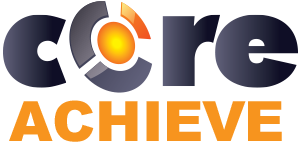Creating Effective Assignments in your LMS
May, 16 2023
Other posts:
Enhancing Team Dynamics for Effective Group Decision-Making with LMS Integration
Organizations increasingly rely on collaborative efforts to solve complex problems, innovate, and adapt to change, but how do we ensure that collaboration is happening.
Maximizing Small Business Potential with Training Technology
Training technologies can push small businesses ahead of their competitors, but what are the factors that go into choosing the right technology?
Unlocking Employee Potential: The Transformative Benefits of an Interactive Learning Management System (LMS)
Interactive training allows for unlocking employee potential, but how is it done?
Building a Robust Sales Pipeline with Training
Every organization wants a streamlined sales pipeline, but building one requires a series of interlocking activities with one of the most important being training.
Strategies for Adapting In-Person Training to Online Platforms
Online training is one of the most flexible ways of delivering training across organizations, but how do you even begin to adapt in-person training into online?
Assessments play a crucial role in measuring learner progress, but it is easy to be lead astray, unknowingly missing goals.
Assessments play a crucial role in measuring learner progress and evaluating the effectiveness of training programs. In a Learning Management System (LMS) setting, assessments can be a powerful tool for gauging knowledge retention and identifying areas for improvement. To maximize the impact of assessments in your LMS, it's important to employ effective techniques that align with your learning goals. Implementing these strategies while creating assessments will engage learners, accurately assess knowledge, and drive meaningful learning outcomes.
Align Assessments with Learning Objectives
Even before assessments are conceptualized, the organization should have an idea of their learning objects are. This is because assessments should directly reflect the desired outcomes of your training program. Ensuring that each question or task is aligned with specific learning objectives will more accurately demonstrate learners’ understanding and application of the material covered. If the assessment is not designed with learning objectives in mind, the results are invalid—they are not measuring goals.
Regularly Review and Update Assessments
Learning objectives will change over time and an organization must be willing to continuously review and update your assessments to ensure they remain aligned with the learning objectives. Changes will have to be made to assessments to reflect new objectives. Regular assessment review helps maintain relevance and effectiveness.
Authentic Assessments
“Authentic” can be a bit confusing, essentially, design assessments that mirror real-world scenarios or tasks relevant to the subject matter. This approach allows learners to apply their knowledge and skills in practical contexts, enhancing their ability to transfer learning to their jobs or daily lives.
Incorporate Different Question Types
Variety is key when it comes to assessment questions. Instead of relying solely on multiple-choice questions, consider incorporating other question types such as fill-in-the-blanks, matching, true/false, and scenario-based questions. This diversity of question formats keeps learners engaged and challenges them to apply their knowledge in different contexts.
Use Rich Media
Like having different question types, by incorporating a diversity of multimedia elements such as images, videos, and audio clips into assessments to make them more engaging and interactive. This will not only enhance the learner's experience but also allows for more diverse and comprehensive assessment options.
Use Formative and Summative Assessments
Utilize both formative and summative assessments to create a well-rounded evaluation process. Formative assessments, such as quizzes after each module or unit, provide ongoing feedback to learners and help them gauge their progress. Summative assessments, such as comprehensive tests at the end of a course, measure overall achievement and determine if learning objectives have been met.
Provide Timely and Constructive Feedback
Feedback is a critical component of the learning process. Ensure that your LMS provides timely and constructive feedback to learners after completing assessments. Highlight correct answers, explain incorrect responses, and offer guidance for improvement. This feedback not only helps learners understand their strengths and weaknesses but also encourages self-reflection and continuous learning.
Consider Adaptive Assessments
Adaptive assessments are a dynamic approach to testing, where the difficulty level of questions adjusts based on the learner's responses. This personalized approach ensures that learners are appropriately challenged and allows for a more accurate assessment of their knowledge and skills. Implementing adaptive assessments in your LMS can help optimize the learning experience and provide tailored feedback to individual learners.
Form Collaborative Assessments
Another way to have dynamic testing would be by having collaborative assignments Encourage collaboration and teamwork by designing assessments that require learners to work together on a shared task or project. This not only fosters a sense of community and engagement but also develops important interpersonal and communication skills.
Allow for Self-Assessment
Incorporate self-assessment components where learners can evaluate their own understanding and progress. This encourages self-reflection, metacognitive skills, and a sense of ownership over the learning process.
Creating effective assessments in your LMS is a crucial step towards driving meaningful learning outcomes. By aligning assessments with learning objectives, updating assessments, making your assessments authentic, incorporating diverse question types and media types, utilizing formative and summative assessments, providing constructive feedback, collaborative and self-assessments, and considering adaptive assessments, you can enhance the assessment process in your LMS and foster a more engaging and effective learning environment. Remember, assessments should not only measure knowledge but also promote deeper understanding and support continuous learning and improvement.
Get started with CoreAchieve for free.
Photo by Bench Accounting on Unsplash

Leave comment: